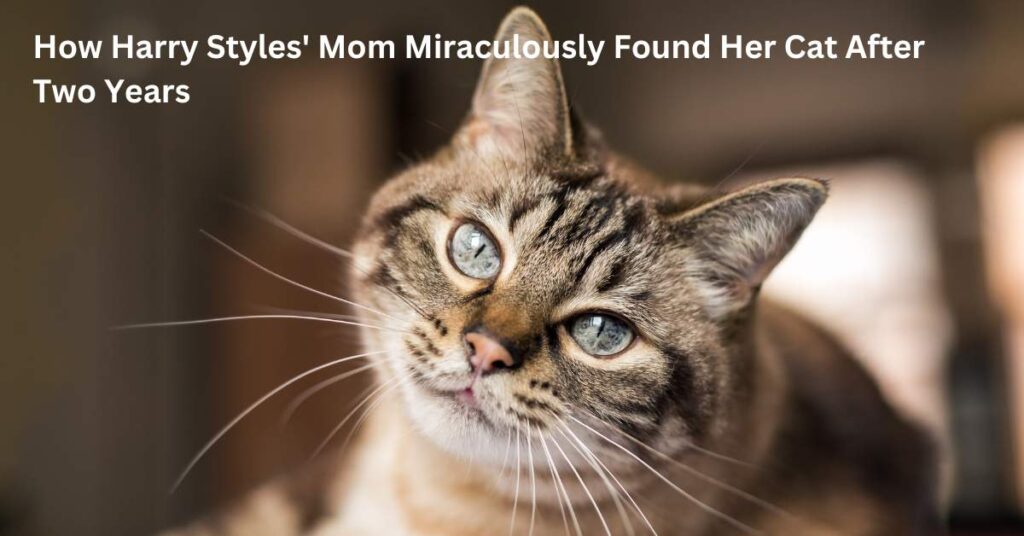When a pet goes missing, it’s a heartbreaking experience for any owner. The uncertainty—where they are, if they’re safe, or even if they’re still alive—can be overwhelming. While some pets are found quickly by neighbors or good Samaritans, others remain missing for months or even years before an unexpected reunion.
That’s exactly what happened to children’s author Anne Twist—who also happens to be Harry Styles’ mom—when a shelter contacted her with shocking news: they had found her long-lost cat. Her black-and-white floof, Evie, had been missing for two years, but a kind stranger had recently taken her in and brought her to a rescue.
Sharing the emotional moment on social media, Twist wrote:
**”The most incredible thing happened today .. I got my little Evie back! Two years ago she went out and never came back. After months spent searching I was resigned to having lost her. 😞
“Last night I got a phone call .. a little rescue centre @willowsway_cat_rescue had her! She’d been taken in by a lovely lady who had fed her for a couple of days in her greenhouse. Although I have no idea where she has been for the past two years I am immensely grateful to have her home🙏 From June last year it became the law to have your cats microchipped .. something I have always done since I started having them in my life … keep your details updated, miracles can happen. 🥰”**
Surely, after her mysterious two-year adventure, Evie was just as happy to be back home.
The Importance of Microchipping Pets
The law Twist mentioned applies in the U.K., where mandatory microchipping for cats was introduced to help reunite lost pets with their owners. According to the U.K. government, “Microchipping is already compulsory for dogs and is proven to be the most effective method for identifying lost pets, with microchipped dogs more than twice as likely to be reunited with their owner.”
Microchips are tiny—about the size of a grain of rice—and are implanted under the skin on the back of a pet’s neck. They don’t track location like a GPS, but they contain a unique ID number linked to an owner's contact information in a database. If a lost pet is found, a shelter or vet can scan the chip and quickly reunite them with their family.
Can Cats Really Find Their Way Home?
Cats are known for their impressive homing instincts, which help them navigate their way back even from miles away. While we don’t fully understand how they do it, some research suggests they use scent cues and the Earth’s geomagnetic fields. A 1954 study even found that putting magnets on cats seemed to interfere with their ability to find their way home—proving that their navigation skills are, quite literally, magnetic.
While many lost cats are found within a few miles of home, those that return after years were likely taken in by someone along the way. As for Evie, she isn’t spilling the details of her grand adventure—and unless she’s been secretly touring with her pop star “big brother,” we may never know.
Regardless of where she’s been, her story is a powerful reminder of why microchipping is so important. Welcome home, Evie!

